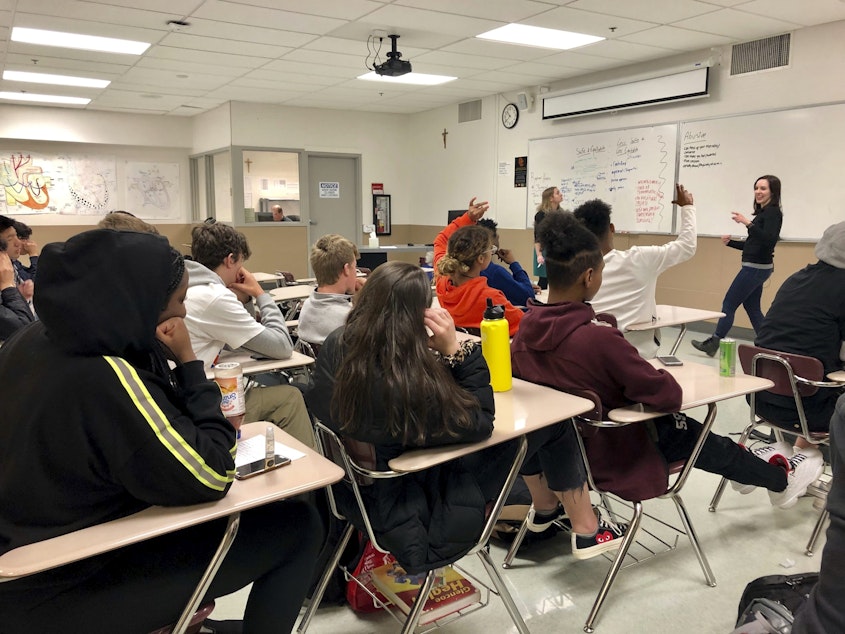Union-led residency program aims to combat WA teacher shortage

A new residency program could help fix growing teacher shortages across the state.
Starting next school year, up to 20 aspiring special education teachers will get hands-on, paid classroom experience in the Federal Way, Walla Walla, and Mukilteo school districts through the Washington Education Association’s inaugural teacher residency program. WEA says it’ll be the first fully union-led teacher preparation program in the nation.
Washington’s largest teachers' union hopes the program will create a new pathway to the teaching profession and help the state build a diverse teacher workforce at a time when districts across the state and nation are struggling to recruit and retain staff. A recent report revealed that the number of teachers leaving Washington classrooms hit a near four-decade high this school year.
The shortage is greatest in special education, which is why WEA decided to make it the focus of the residency. Marisol Mallari knows the need for a teacher residency program in Washington all too well.
Mallari has been a teacher for over 20 years, mostly in special education, and she still remembers the shock she experienced going from teacher training to having a classroom of her own.
She also trained fellow educators across the state during the pandemic and saw firsthand the need for extra support for teachers who are just starting out.
Sponsored
“Sometimes what you learn in your college prep is totally different when you’re in the workforce,” said Mallari, who worked with a group of teachers in WEA to design the residency program. “And we need to retain these wonderful new special educators… so we need to make sure they’re fully supported.”
The idea of the program is that each resident will teach and learn alongside a veteran educator. They’ll spend nine weeks in various learning settings for students with disabilities, including a behavior room, resource room, intensive support, and an inclusive general education classroom. The nine-week rotations are book-ended by two seven-week institutes focused on theory this summer and next.
Residents pay $2,000 in tuition, and their school district pays them a minimum salary of $35,000, including benefits.
Mallari hopes the residents will emerge “classroom-ready educators” who can prepare and deliver effective, inclusionary education for all students. She also hopes the teachers will be less likely to experience burnout and will stay in the profession long-term.
And if teachers stick around, Mallari believes the quality of special education will improve across Washington. WEA hopes to expand the program to more school districts in the future.
Sponsored
“That’s the biggest vision,” she said.
Applications for the residency’s first cohort are open through May 12.




